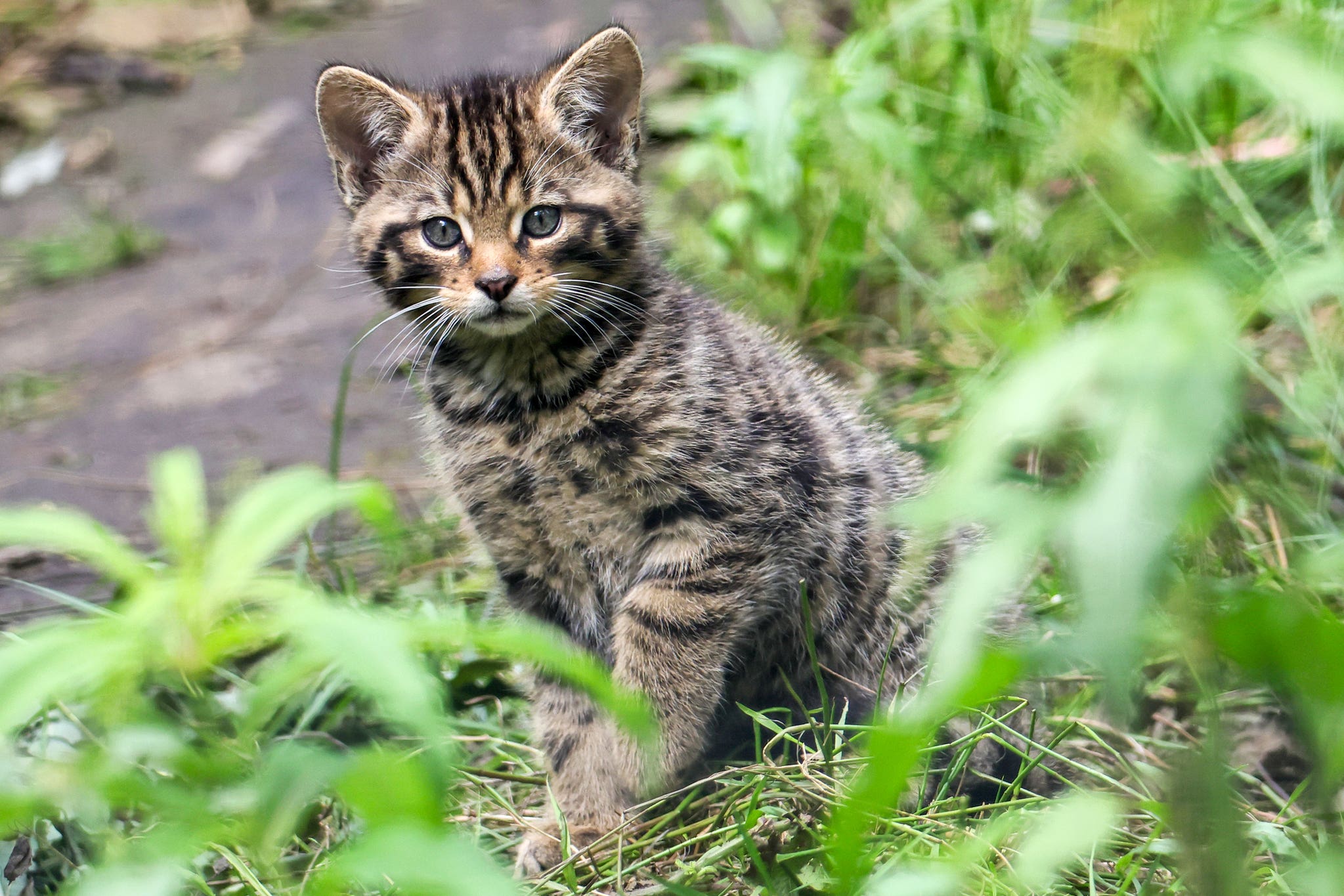Birth of wildcat kittens in Kent wildlife park sparks hope for rarest UK mammal
Wildwood Trust said the litter were born about nine weeks ago in a dedicated off-show breeding enclosure, to parents Talla and Blair.

Your support helps us to tell the story
From reproductive rights to climate change to Big Tech, The Independent is on the ground when the story is developing. Whether it's investigating the financials of Elon Musk's pro-Trump PAC or producing our latest documentary, 'The A Word', which shines a light on the American women fighting for reproductive rights, we know how important it is to parse out the facts from the messaging.
At such a critical moment in US history, we need reporters on the ground. Your donation allows us to keep sending journalists to speak to both sides of the story.
The Independent is trusted by Americans across the entire political spectrum. And unlike many other quality news outlets, we choose not to lock Americans out of our reporting and analysis with paywalls. We believe quality journalism should be available to everyone, paid for by those who can afford it.
Your support makes all the difference.The birth of wildcat kittens at a Kent wildlife park has sparked fresh hopes for the survival of Britain’s rarest mammal species, conservationists said.
The Wildwood Trust’s Herne Bay park, just outside Canterbury, said the litter were born around nine weeks ago in a dedicated off-show breeding enclosure, to parents Talla and Blair.
Laura Gardner, director of conservation at the trust, said the kittens will play an important role in bringing back the species from the “brink of extinction”.
European wildcats are considered rarer than the Bengal tiger and giant panda, and are the only native cat species surviving in Britain, with a small population still roaming the Scottish Highlands.
But with an estimated fewer than 300 individuals left, the population has been declared “functionally extinct”.
Ms Gardner said: “Wildwood has been breeding wildcats for over ten years, building knowledge and expertise of the species which has led to our amazing breeding success.
“By working together with the breeding programme partners, we are ensuring the beautiful wildcat has a future in Britain.”
The kittens at Wildwood will contribute to the wildcat conservation breeding programme coordinated by The Royal Zoological Society of Scotland (RZSS), which has been designed to support the restoration of the species in Britain.
A healthy population of reintroduced wildcats will help to restore the balance in the ecosystem by controlling numbers of prey animals, such as rabbits and rodents, and of predators such as foxes through competition for food, conservationists said.
This in turn can have a ripple effect across ecosystems, by which habitats for many more plant and wildlife species can be restored, they added.
Wildwood, which has a successful history of breeding wildcats, said the new kittens are the first to be born since the completion of dedicated breeding enclosures at the Herne Bay park.
Sally Holt, head of carnivores and small mammals at Wildwood, said the new facilities have been key in helping support the breeding of this secretive species.
“Wildcats have very particular den box preferences, so we worked hard with researchers to find the right design for the new enclosures,” she said.
“The off-show enclosures have created a quieter environment, which will help the kittens develop key survival skills without becoming habituated to people.”
“Our remote cameras mean we can monitor their behaviour and it’s been wonderful to see their characters develop.
“They have such a close bond already and enjoy playing and sleeping next to each other.”
Ms Holt said the kittens will undergo health checks with the park’s veterinary team in the coming days.
The team will also check their sex and gather data on neck circumference measurements for collaring research that will support future tracking and release success.
Wildwood Trust said people can support the wildcat conservation work at https://www.wildwoodtrust.org/support-us/save-the-wildcat.